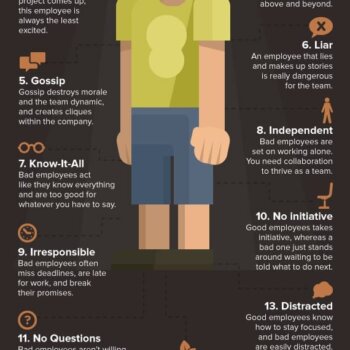“A successful business is often the best thing that can happen to a family – and the worst.”
Parents always want to pass on their legacy to children. That could be the reason why more than 80% of businesses globally are family owned. While getting acquainted with business right from childhood can help develop your entrepreneurial instincts, taking up your first job at your family business may not be a good idea as you could be missing out on some vital exposure in the business world.
Here are 5 reasons why you should not join your family business immediately after you pass out from your college.
1. Crisis Management Skills
The Marwaris are a shrewd, practical business community with roots in India, that has established themselves all over the world. There is a story about them that a Marwari man should start a business, fail and bounce back not once, but thrice, in order to qualify himself for asking the hands of a woman in marriage.
The reasoning behind this seemingly absurd practice is that learning to handle crisis and bouncing back from a failure is as important as success itself.
When you join your family business, there is always someone else in charge to make the difficult decisions. The businesses are usually past the initial turmoil, trials and tribulations. A person who ventures directly in to a stable business may not learn the crucial skill of managing a crisis and rebounding from a failure. Once the founder steps down, the new leader may flounder and find it difficult to hold themselves up in times of crisis.
2. Costly Mistakes
The new generation that enters in to a family business usually starts his journey from the top. Their genes give them the privilege of being catapulted into a senior position right at the beginning of their career. But with hardly any experience, they are likely to make costly mistakes in this hugely responsible job.
Whereas if the same person joins another company after his college, he is likely to be given job appropriate to his skills and experience- from where he can learn and progress steadily to take responsible decisions.
3. Exposure To New Business Practices
Family businesses tend to follow business practices set by the founder. New systems are hardly implemented especially in family businesses with less than 20 employees.
When an individual joins his family business without any other exposure, he is likely to follow the set path and very soon, the business is likely to stagnate. Exposure to new business environment can help one understand new, effective and innovative business practices that can be implemented back in their family business.
4. Professionalism
Nepotism is unfortunately one of the biggest problems family businesses encounter. Favorites at home are favorites at business irrespective of their merits and capabilities. They are often given an unfair advantage over non-family employees creating in them resentment and discontent. Moreover, it is easy to take a fight from within your family to your boardroom.
It takes great professionalism to separate business from family once you enter your office. It takes great strength of character to be impartial and give non-family employees their due credit.
Working with an outside family business gives one a sense of perspective as a non-family employee. He first handedly experiences the difficulties they encounter in having their voice heard and merits recognized. He learns to be professional and differentiate business from personal relations.
These important lessons lay a strong foundation in developing their ability to be an unbiased leader when they join back their family business.
5. Value of family business
Family businesses are somehow taken for granted and seen as a fall back option, whereas a properly nurtured family business can be a wonderful support system throughout your life. Be it your little one’s school program or a hospital visit, there is always a support system within your establishment who understands it and takes responsibility for seeing your job is done in your absence.
While you may know the advantages and flexibility that a family business offers, you realize it only when you work outside.
___________________
About the Author
This article was written by Parvathy Pothan. Parvathy is a freelance Writer, Blogger and Co-Founder of Web Design Studio. She focuses on writing about marketing, entrepreneurship and small businesses. Follow her freelance writing website at thecontentbowl.com and her web designing venture at 7thpillar.com





























